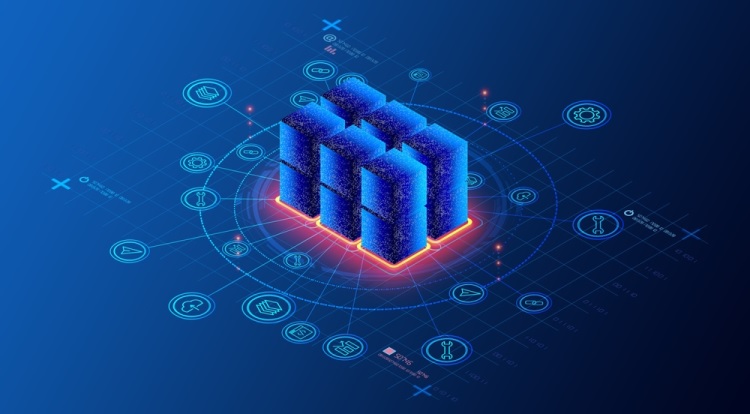In the ever-evolving world of data management, one term that has gained immense prominence in recent years is JSON databases. JSON, which stands for "JavaScript Object Notation," is a flexible and powerful data format that has transformed the way we store, retrieve, and manage data. In this comprehensive guide, we will delve deep into the realm of JSON databases, demystifying their concepts and applications while shedding light on their role in autonomous data management.
The Rise of JSON Databases
What Is JSON?
JSON, often pronounced as "jay-sawn," is a lightweight data interchange format that is easy for humans to read and write and easy for machines to parse and generate. Its simplicity and readability make it an ideal choice for data storage and transmission, especially in web applications.
JSON data is structured as a collection of key-value pairs, similar to how objects are defined in JavaScript. This structure provides a highly organized way to represent and store data. It has gained popularity not only in web development but also in the realm of databases due to its simplicity and flexibility.
The Need for JSON Databases
Traditionally, relational databases have been the go-to choice for data storage. While they are effective for structured data, they can be cumbersome when dealing with unstructured or semi-structured data, which is becoming increasingly common in the digital age. This is where JSON databases come into play.
JSON databases, also known as NoSQL databases, are designed to handle data that doesn't fit neatly into tables and rows. They can store data in a more dynamic and flexible manner, making them a perfect fit for modern applications and data management needs. With JSON databases, you can store data with varying structures and retrieve it efficiently, making them an excellent choice for agile and dynamic systems.
Understanding JSON Databases
JSON Structure
JSON databases are built on the foundation of JSON data. Understanding the basic structure of JSON is key to comprehending how JSON databases work. JSON data is organized into objects and arrays, providing a hierarchical structure that can represent complex data relationships.
◉ Objects: In JSON, objects are enclosed in curly braces {} and consist of key-value pairs. Each key is a string, and the values can be strings, numbers, arrays, objects, booleans, or null.
Example:
{
"name": "John Doe",
"age": 30,
"isStudent": false,
"courses": ["Math", "Science"]
}
◉ Arrays: Arrays in JSON are ordered lists of values enclosed in square brackets []. These values can be of any data type, including objects and other arrays.
Example:
["Apple", "Banana", "Cherry"]
JSON Databases in Action
JSON databases employ these basic JSON structures to store data. Instead of predefined tables, JSON databases allow you to create collections or documents to store data in a flexible and scalable manner. Let's explore the key features of JSON databases:
1. Schema-less
Unlike traditional relational databases, JSON databases are schema-less. This means you don't need to define a rigid structure for your data in advance. You can simply start storing data as it comes, making them ideal for projects where the data structure may evolve over time.
2. High Performance
JSON databases are known for their high performance, especially when it comes to read and write operations. Their ability to handle large volumes of data efficiently makes them a preferred choice for applications with heavy data processing requirements.
3. Scalability
Scalability is a fundamental feature of JSON databases. They can easily scale horizontally, accommodating growing datasets without a hitch. As your application or website expands, you won't need to worry about data storage limitations.
4. Query Flexibility
JSON databases offer a variety of query options to retrieve data efficiently. You can use a combination of keys, values, and nested structures to find and manipulate data as needed.
Autonomous Data Management with JSON Databases
The autonomous data management capabilities of JSON databases are truly revolutionary. They empower businesses to automate various data-related tasks, ensuring data accuracy, availability, and security. Let's explore how JSON databases contribute to autonomous data management:
Data Integration
JSON databases simplify data integration by allowing you to store data in its natural format. This eliminates the need for complex transformation processes, reducing the chances of data errors.
Real-time Data Updates
In an age where real-time data is invaluable, JSON databases shine. They can handle real-time updates seamlessly, ensuring that the data you rely on is always up-to-date.
Data Security
JSON databases offer robust security features, allowing you to define access controls and encryption methods to protect your data. This is crucial for businesses dealing with sensitive information.
Data Availability
With JSON databases, data availability is no longer a concern. They can replicate data across multiple servers, providing high availability and fault tolerance, even in the face of hardware failures.
Conclusion
In the era of digital transformation, JSON databases have emerged as a game-changer in data management. Their flexible structure, high performance, scalability, and autonomous data management capabilities make them an ideal choice for modern businesses and applications. As we continue to witness the evolution of data management, JSON databases stand as a testament to innovation and adaptability.




0 comments:
Post a Comment